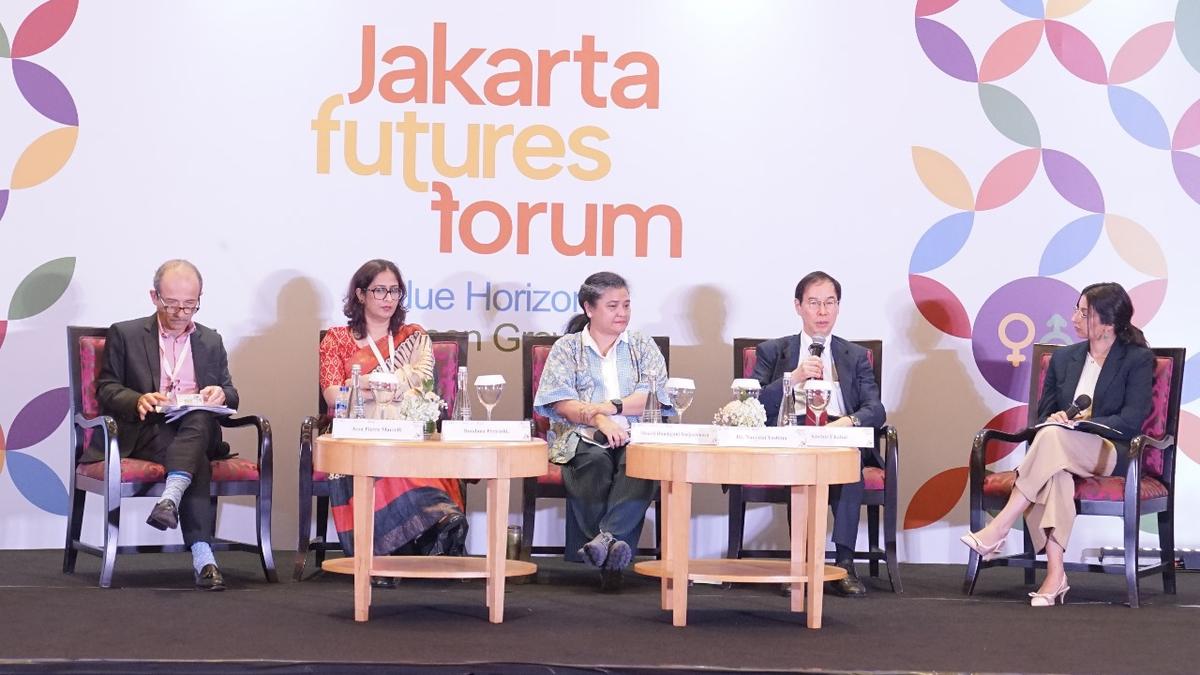
Bihar environment secretary addresses Jakarta Futures Forum, stress upon global collaboration for renewable energy transition
The Hindu
Bandana Preyashi, Secretary of the Department of Environment, Forest and Climate Change, Bihar, emphasized significant milestones, such as India reaching 40% of its electric-generation capacity from non-fossil fuels by November 2021, and Bihar pioneering the development of a ‘Climate Resilient and Low Carbon Development Pathway’ for the State.
In an effort to raise global awareness about the initiatives taken in both India and Bihar for promoting renewable sources of energy, Bandana Preyashi, Secretary of the Department of Environment, Forest and Climate Change, Bihar, spoke at Jakarta Futures Forum in Indonesia on May 3.
Ms. Preyashi emphasized significant milestones, such as India reaching 40% of its electric-generation capacity from non-fossil fuels by November 2021, and Bihar pioneering the development of a ‘Climate Resilient and Low Carbon Development Pathway’ for the State.
Participating in a panel discussion titled ‘International Cooperation for Facilitating a Just and Inclusive Energy Transition’, alongside speakers including Indra Mani Pandey, Secretary General of Bay of Bengal Initiative for Multi-Sectoral Technical and Economic Cooperation (BIMSTEC), and Professor Eniya Listiani Dewi, Director General of New Renewable Energy and Energy Conservation, Ministry of Energy and Mineral Resources, Indonesia, Ms. Preyashi underscored the critical need for global collaboration in combating climate change and advancing sustainable energy solutions.
Highlighting India’s progress towards renewable energy goals, Ms. Preyashi said, “India has exceeded its commitment made at the United Nations’ Conference of Parties (COP) 21 - Paris Summit by achieving 40% of its power capacity from non-fossil fuels several years ahead of schedule (originally targeted by 2023). The country ranks fourth globally in renewable energy installed capacity (including large hydro), fourth in wind power capacity, and fifth in solar power capacity (according to REN21 Renewables 2023 Global Status Report).”
She elaborated on India’s proactive steps towards clean energy transition, including commitments to achieve 50% cumulative electric power installed capacity from non-fossil sources by 2030, energy independence by 2047, and net-zero emissions by 2070.
“The government also plans to invite bids and establish 50 GW of renewable energy capacity annually for the next five years, adding 250 GW of renewable energy and ensuring 500 GW of installed capacity by 2030,” she said.
Regarding Bihar’s climate action and energy transition initiatives, Ms. Preyashi said, “Bihar has successfully implemented various programs and schemes to mitigate climate change and reduce greenhouse gas emissions in alignment with national objectives. Flagship programmes such as Jal Jeevan Hariyali Mission which aims to rejuvenate water bodies, promote biodiversity conservation, and enhance green cover is being implemented in the state. Bihar Renewable Energy Development Agency (BREDA) is developing an updated Renewable Energy Policy-2024. “











